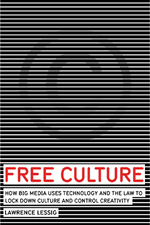Outside the Echo Chamber
I'm writing this post from Salem, VA in my girlfriend's mom's condo. I note my location because it is what inspired this entry. Salem is a different town than what I am used to. In my "regular" life I am always connected, always on, always within seconds of the web. Technology and the web are definitely a passion of mine. Here, however, people are not as aware of the web in comparison to the group of people I normally associate with. At Christmas dinner I found myself explaining what I do to people, some of which, were disillusioned with the web and what is has offered the average user so far. They feel like they have been let down by the technologists. If they are going to use the web, they want it super simple and I can't say I blame them.
I explained RSS technology and what it enables people to do and they loved the idea and wanted to know how to start using the technology. Even with my explanation, they felt it was still a bit cumbersome but I assured them that we are working toward making it very simple to use so the technology can live up to its billing as Really Simple Syndication. To my surprise, the conversation didn't just hinge on RSS and other bleeding edge technologies. It also veered toward the web itself and how usability issues still need to be addressed.
Now, I know some people will never think the web is easy enough to use and that it is just not worth the time and effort to get up to date with the technology but I do think the web could use some improvements and I know I am not alone. With that said, I mentioned to my dinner companions that version 2 of the web, which is being built right now, is aiming to address usability and create communities online. As I went through my explanation people got very excited and one woman actually gave me her e-mail address so I could send her a quick note on how to start reading news via RSS.
This excitement from the average user is what we should always be striving for. It is what gets me excited about what the web can do and how it can transform communications and societies. Sure, I love the latest technology as much as the next geek (at any one time I'll be on 5 or 10 beta tests of some sort) but it is when that technology transcends through the alpha geek stage to the average user that it becomes really exciting and beneficial to society.
I explained RSS technology and what it enables people to do and they loved the idea and wanted to know how to start using the technology. Even with my explanation, they felt it was still a bit cumbersome but I assured them that we are working toward making it very simple to use so the technology can live up to its billing as Really Simple Syndication. To my surprise, the conversation didn't just hinge on RSS and other bleeding edge technologies. It also veered toward the web itself and how usability issues still need to be addressed.
Now, I know some people will never think the web is easy enough to use and that it is just not worth the time and effort to get up to date with the technology but I do think the web could use some improvements and I know I am not alone. With that said, I mentioned to my dinner companions that version 2 of the web, which is being built right now, is aiming to address usability and create communities online. As I went through my explanation people got very excited and one woman actually gave me her e-mail address so I could send her a quick note on how to start reading news via RSS.
This excitement from the average user is what we should always be striving for. It is what gets me excited about what the web can do and how it can transform communications and societies. Sure, I love the latest technology as much as the next geek (at any one time I'll be on 5 or 10 beta tests of some sort) but it is when that technology transcends through the alpha geek stage to the average user that it becomes really exciting and beneficial to society.













